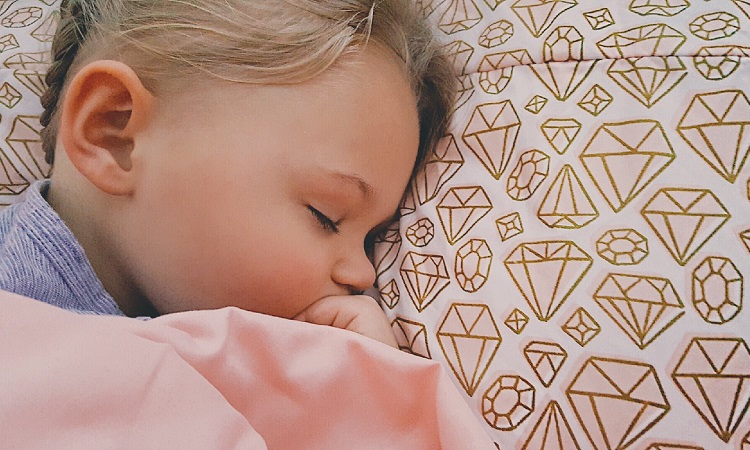
All parents love bedtime (after all the hard work and sweating is done) and need that nightly dose of "us time" in order to face the day again. Sometimes we even count down the minutes until their kids are in bed. I've started doing it as early as 6 a.m. many mornings when I wake up to my 3-year-old jumping on my bed and stepping on my neck.
It's also a fact all kids hate bedtime from the time you bring them home to the hospital to the toddler years and beyond. I'm sorry to tell you, it doesn't get much better. Trust me, I have a teenager and two tweens, and bedtime is still a shitshow. Children of all ages don't want to go to bed, and hitting the sheets without complaint is not a skill they possess.
We all know the struggle still happens even after we get them tucked in for the night. They are thirsty, they remember something very important they have to tell you that happened two weeks ago, their ankle hurts, or they decide they must find their favorite socks and sleep with them on their hands.
One thing that remains consistent in many homes in order to save the sanity of parents is a bedtime you can all count on. Even though my kids have always fought me when it's time to call it a night, my pediatrician always said consistency was key, and she was right. If I didn't stick to my guns with the designated bed time and routine, things got even worse and we all felt it the next day.
If I let my kids take charge here, they would never want to go to bed.
So, when I saw a once-again circling article stating science says you should let your kids stay up later if they want, I had one thought: Hell to the no.
I don't care what science says, a 3-year-old does not need to be dictating bedtime. I'm sure there are exceptions and children who are tired by 7 p.m. and turn themselves in, but let's get real here. Bedtime is usually when they like to break out with the acrobatics and long drawn-out stories. Somehow, they think it's more fun to indulge in these activities after the parents have let them know it's time to go to sleep.
The article published by The Cut discusses how bedtime is a time when parents and kids butt heads quite a bit and suggests, "Maybe knowing your own body, even as a toddler, ought to trump the all-powerful 'because I said so.'"
Mmmm, no. If I had told my kids when they were toddlers (around age 2 is when a lot of the "bedtime resistance" starts) that they could stay up later if they wanted to, things would have gotten ugly. Believe you me, they saw Mommy was done with their own eyes after I tucked them in for the 55th time. I mean, if I let my kids take charge here, they would never want to go to bed. Plus, the last time I checked, I was the boss in my house.
Maybe they know when it's the right time to go to bed because of how tired they feel, but it doesn't mean they listen to their body's signals. Sometimes, they would be falling asleep as I was reading to them, telling me they weren't tired when they clearly were. In these times, "Because I said so" is my necessary go-to phrase to get them to sleep.
My kids need their sleep. It's not just about getting them to bed on time, it's also about how their sleep habits affect their moods, eating and behavior. It's all connected. Just a few lost hours of sleep can lead to sleep deprivation and a wide range of physical and emotional issues.
Plus, on our end, we need to be as well-rested as possible, too. Toddlers are exhausting. We love them, think they are smart and enjoy being with them, but we all have an expiration date. And it's our job as parents to pay attention to that and to set the tone for a good night's sleep. If that means getting them to bed at a consistent time and not letting them stay up late, then so be it.
The TL;DR: Waiting for a child to tell you when they are ready to go to bed is a horrible idea, one I would never entertain. If it works for you, then great, more power to you, but I count on bedtime to be the same every night—for both my kids' sake and for mine.



